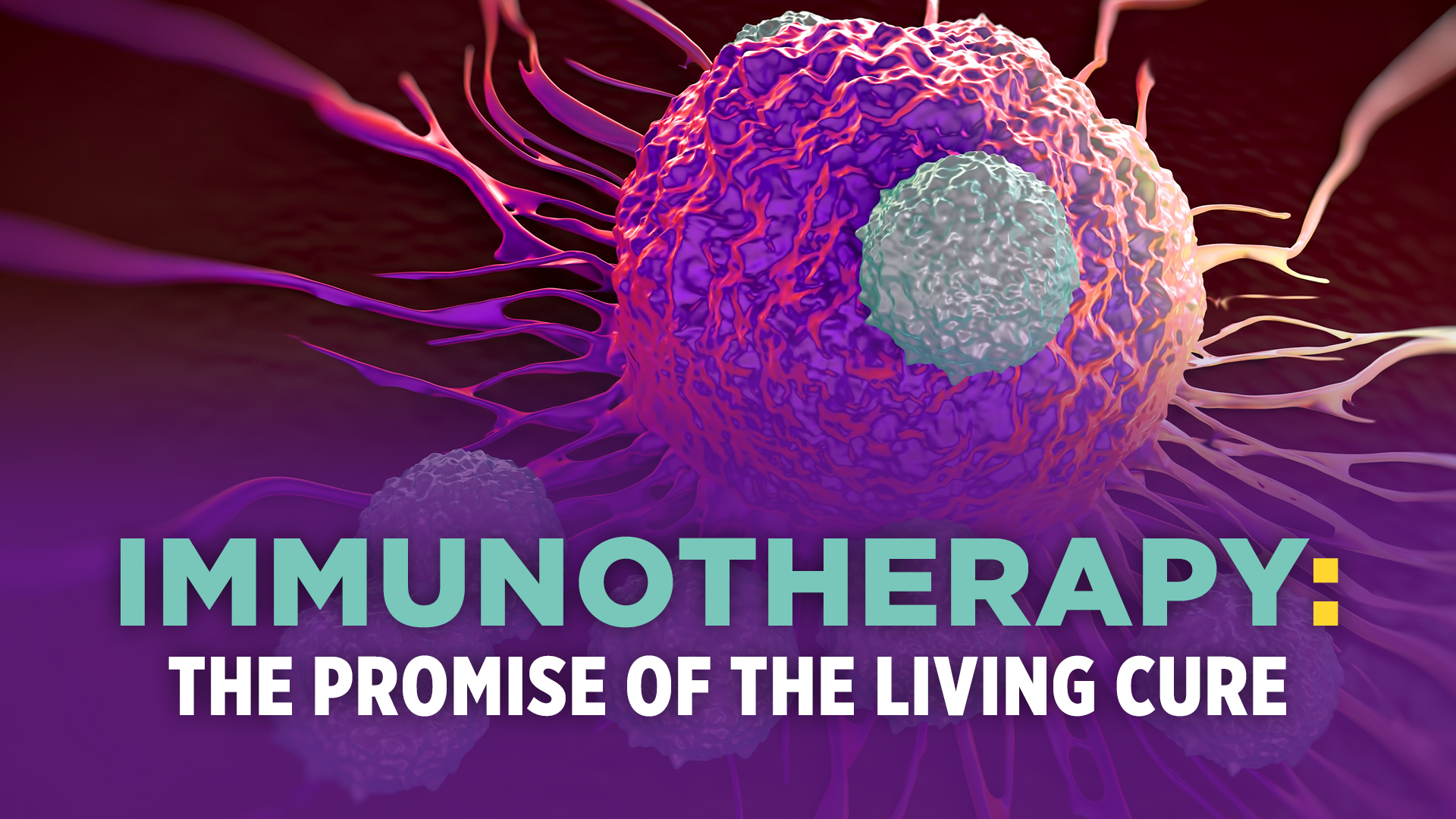There's a lifesaving revolution unfolding in cancer research...
A new treatment is extending the lives of people with supposedly "incurable" cancers... even wiping out cancers completely.
I call it the "Living Cure."
I guarantee you that in the next few years, major magazines will feature the Living Cure on their covers. Ordinary folks will know all about it. Drug companies investing in it now will become pharmaceutical giants.
One of my close contacts in the biotech world tells me doctors are battling to get their names and patients into these trials, because the doctors who play a prominent role in what is taking place right now will be considered heroes of the industry in a decade.
It's all starting to unfold.
Now, I want to be clear...
These treatments are still young. They can't cure every cancer... at least not yet.
And they come with risks and downsides.
Still, they've yielded some of the most extraordinary results in more than a century of modern cancer treatment.
That's why I recently sat down with my research assistant Amanda Cuocci to talk about this groundbreaking new type of cancer therapy – immunotherapy. We also explain how cancer forms, the traditional cancer treatments available, and new studies focused on this lifesaving treatment.
Just click the image below to watch...
Now on to this week's burning questions...
Q: Six weeks ago I signed up for lifetime membership of Eifrig newsletters. Now you are going out of the newsletter business. Maybe I missed something but please explain. – C.W.
A: No need to worry! We're still publishing newsletters. What we're doing with our Stansberry Portfolio Solutions product is something we've never done before. We don't just give you recommendations, like you find in our newsletters. Instead, we've created a practically "done for you" portfolio.
It's all laid out for you, down to the exact number of shares to buy. We even have a position-size calculator for you to use to tailor our recommendations to your portfolio size.
You can learn more about this new way we're doing business here.
And thanks for being a lifetime member.
Q: Have you ever tried Zicam? It is a flu and cold symptom lowering over-the-counter medication containing zinc. – G.H.
A: Zicam is an interesting case. Back in 2009, the company took nasal sprays and nasal swabs containing zinc off the market. It was a response to a class-action lawsuit alleging that zinc nasal treatments led to a loss of smell, or anosmia. The company states no evidence linked the two, but keep in mind that the U.S. Food and Drug Administration (FDA) doesn't regulate drugs like Zicam.
In any case, the company's new formulations of nasal spray do not contain zinc. And its supplements containing zinc have not had any reported issues with smell.
That said, zinc is still great for cold-fighting powers. As we told you earlier this week, the mineral strengthens the body's "T-cells," which fight off invading bacteria and viruses in the body. Similarly, vitamin C pumps up our immune system. So do what I do and take these as supplements if you feel a cold starting. You can also load up on foods like beef, pumpkin seeds, and chickpeas for zinc. And try citrus fruits, kiwis, and Brussels sprouts for vitamin C.
[optin_form id="73"]
Q: Will you please publish the breathing by numbers article again. – G.D.
A: For readers who missed it, we delved into one of the easiest ways to combat stress – breathing exercises. These are a great way to ease you into mediation if you've never tried them before.
You can read the full issue here.
Q: Do women and men have the same symptoms from heart attacks? – C.M.
A: Women typically experience slightly different heart attack symptoms, including anxiety, sweating, and fatigue, and they may not experience chest pain. In this week's Weekly Update, Amanda explains the differences in heart attack symptoms in men and women. She also explains the steps you need to take if you or a loved one is having a heart attack. Watch it here.
- Did you miss our biggest night of the year? Watch the replay here.
- Something different: Everything you want to know about the Super Bowl.
Here's to our health, wealth, and a great retirement,
Dr. David Eifrig and the Health & Wealth Bulletin Research Team
February 2, 2018

